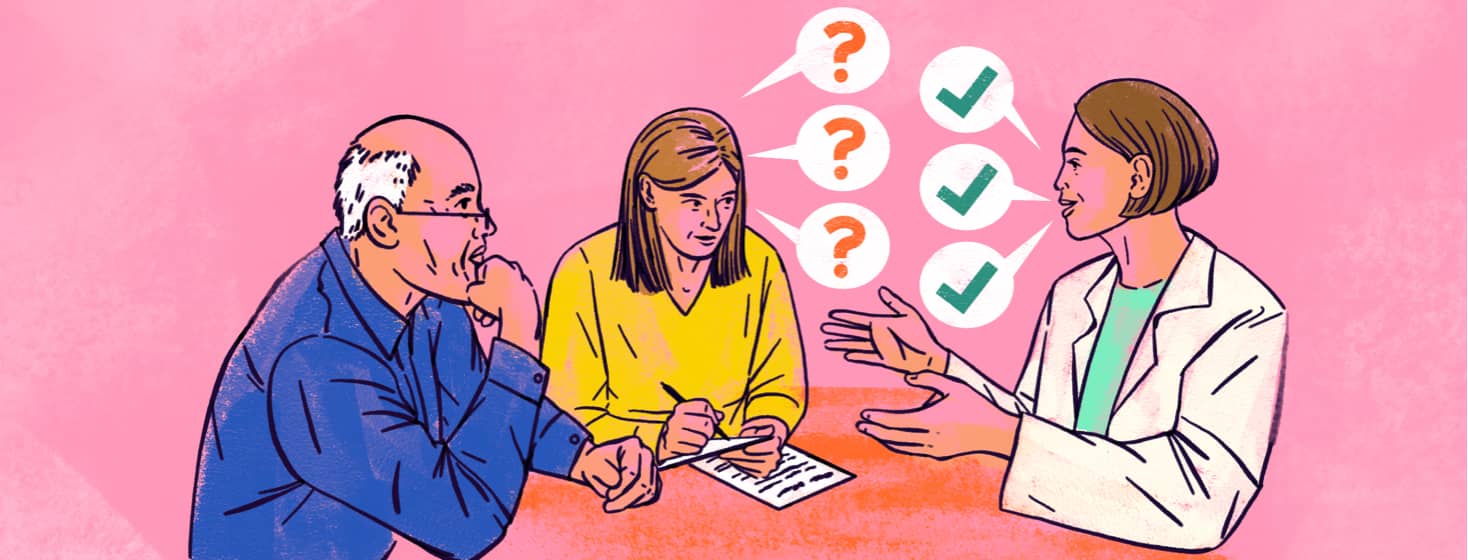Doctor Appointments: 5 Pro Tips for Dementia Caregivers
Any caregiver can probably share a story about working with a great doctor and a not-so-great one. I think some caregivers start out thinking that doctors will be our biggest helpers in caring for our loved ones. As we find out later, they can definitely be a great support and sometimes our biggest cheerleaders - but sometimes they aren't.
It depends significantly on the doctor, and it also depends on how you advocate for your loved one. Here are some helpful pieces of advice that can help dementia caregivers in the doctor's office.
1: Respect everyone's time
This is well-known to caregivers: Give yourself more time than you need to get to an appointment. This will allow you time not only to check in and have time to use the restroom but also to start the appointment on time and give you the most time with your provider.
A hurried appointment is no fun for anyone. And our loved ones with dementia usually feel very anxious if they are being rushed.
Next, I heard this tip from a doctor - tell your providers as quickly as possible what they need to know, and then they can proceed with caring well for your loved one. Doctors probably have a full schedule of patients every day. While they'd like to spend unlimited time with patients, they only have an allotted time slot for your appointment.
The quicker and more specific you can get your questions and concerns across, the better the appointment will go.
2: Do a little homework
Learn some medical terminology ahead of time if you can. It has helped me understand basic medical lingo about dementia even with a beginner's level of understanding. Then I go into an appointment without wasting time asking for definitions.
For example, I now know what different radiology scans are for (X-ray, CT scan, MRI). I know what the different doctors on my mom's healthcare team (neurologist, cardiologist, geriatrician) do and what I can ask of them. And I generally know what my mom's medications are and who prescribed them.
3: Try talking the medical talk
It can help to echo the terms that the healthcare team also uses. If they describe a broken ankle with a specific phrase, use that phrase. If they use a fancy word for a symptom, your loved one has, write it down and use that term in the future.
For example, when my mom fell and had to go to the ER, they called the cut on her hand a "laceration," so I adopted that when talking to other doctors, and they knew exactly what I was talking about.
This also helps on the phone, when you're typically talking with an operator who is typing out a message for your loved one's provider. Being specific and to the point can speed up a reply.
But don't be afraid to ask questions. Medical lingo can be over our heads. In my last article about doctor appointments, I shared that asking a question now will save you a ton of time later trying to track down an answer.
4: Pretend you're in a classroom
Remember being a student in a classroom? You'd take lots of notes on your phone or laptop or with a pen and paper because you don't want to forget anything.
Just like professors and teachers, doctors talk fast. Sometimes a quick thought is thrown out that proves to be very helpful when talking to your loved one, family members, or other care providers in the future.
Pretend you're a student again and write detailed notes at each appointment. Keep it organized in an accordion file or dedicated "Appointments" file folder. The appointment usually goes by in a blur, and when you look at your sheet of jumbled notes later, you'll still remember what was said and be glad you jotted it down.
And thankfully, it's not school, and there's no test at the end.
5: Honey attracts more bees
Be respectful and polite. Yes, it's frustrating to cart your loved one from appointment to appointment, track down records, and follow up on test results.
As the saying goes, honey attracts more bees, which is true for doctors and all healthcare employees. It helps to remember that they are just regular people and are trying their hardest to care for many patients.
If you've had a negative experience with healthcare providers, it can be easy to feel cynical or defeated, but try to stay positive. A rude attitude can rub off on staff and healthcare professionals, but so can a good attitude. In my experience, nothing will get you further than respect and kindness.
What are your tried and true tips for navigating the doctor's office with your loved one? Tell us in the comments below, or share your story with the community.

Join the conversation